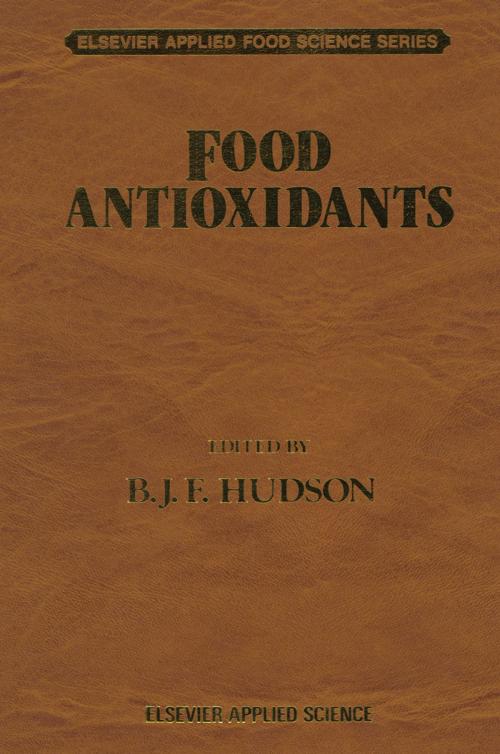Food Antioxidants
Kids, Natural World, Nonfiction, Reference & Language, Education & Teaching, Science & Nature, Science| Author: | B. J. Hudson | ISBN: | 9789400907539 |
| Publisher: | Springer Netherlands | Publication: | December 6, 2012 |
| Imprint: | Springer | Language: | English |
| Author: | B. J. Hudson |
| ISBN: | 9789400907539 |
| Publisher: | Springer Netherlands |
| Publication: | December 6, 2012 |
| Imprint: | Springer |
| Language: | English |
Antioxidants are present naturally in virtually all food commodities, providing them with a valuable degree of protection against oxidative attack. When food commodities are subjected to processing, such natural antioxidants are often depleted, whether physically, from the nature of the process itself, or by chemical degradation. In conse quence, processed food products usually keep less well than do the commodities from which they originated. Ideally, food producers would like them to keep better. This objective can often be achieved by blending natural products rich in antioxidants with processed foods, or by using well recognised antioxidants as food additives. In order to understand their action, and hence to apply antioxidants intelligently in food product formulation, some knowledge of the mechanisms by which they function is necessary. This is complex and of antioxidative may rely on one or more of several alternative forms intervention. Accordingly, the various mechanisms that may be relevant are discussed in Chapter 1, in each case including the 'intervention' mechanism. When present in, or added to, foods antioxidants are functional in very small quantities, typically, perhaps, at levels of 0·01 % or less.
Antioxidants are present naturally in virtually all food commodities, providing them with a valuable degree of protection against oxidative attack. When food commodities are subjected to processing, such natural antioxidants are often depleted, whether physically, from the nature of the process itself, or by chemical degradation. In conse quence, processed food products usually keep less well than do the commodities from which they originated. Ideally, food producers would like them to keep better. This objective can often be achieved by blending natural products rich in antioxidants with processed foods, or by using well recognised antioxidants as food additives. In order to understand their action, and hence to apply antioxidants intelligently in food product formulation, some knowledge of the mechanisms by which they function is necessary. This is complex and of antioxidative may rely on one or more of several alternative forms intervention. Accordingly, the various mechanisms that may be relevant are discussed in Chapter 1, in each case including the 'intervention' mechanism. When present in, or added to, foods antioxidants are functional in very small quantities, typically, perhaps, at levels of 0·01 % or less.















